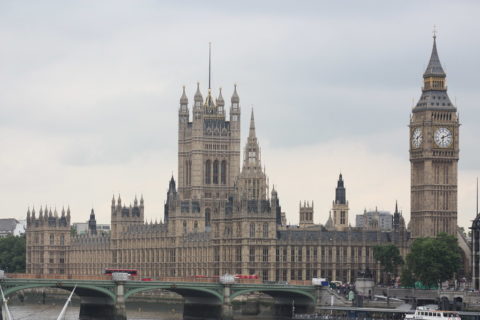Swift Badminton
Published 27 Sept 2019This video will give you 7 tips and tricks to become a worse badminton player.
(more…)
September 9, 2023
7 Ways to Suck at Badminton
QotD: Using the Socratic method in today’s university
Assuming you’ve got your knowledge ducks in a row, you then need a method of getting it into young heads that isn’t straight lecture. Lectures were necessary in the pre-internet days, but now standing up in front of a lecture room, reading off a list of Famous Battles of the Civil War, is counterproductive. That’s what the assigned reading list is for. Instead, you need to pose leading questions, and let students blunder through them – NOT towards a predetermined conclusion, necessarily, but to see where they go with it. Figure out what they’re not getting, show them how to get it … and let them get it for themselves.
The problem is, the Socratic method isn’t just “asking a bunch of questions.” The idea of elenchus is to get students to question their own presuppositions. You’re teaching them how to think, not what to think. It’s a neat trick, and I’m far from an expert at it — not least because I was never taught how to do it, except by my teachers in undergrad, who did it to me.
Worse, if you had to put two words on Western Civ’s tombstone, ignoratio elenchii would be strong contenders. That’s “irrelevant conclusion” in English, and it’s not too much of an exaggeration to say that “irrelevant conclusion” basically IS “education”, K-thru-PhD. It’s GIGO, as the computer nerds used to say back in my day — Garbage In, Garbage Out. It’s pretty damn tough, in other words, to have a logical argument with someone who pretends not to believe in logic. By the time you get them in a college classroom, they have twenty years’ experience parroting nonsense … but not the “arguments” for said nonsense, because there aren’t any, and that’s the first thing you have to demonstrate. It’s a tough row to hoe.
Which is why most profs won’t risk it. Because, of course, the other problem with actually arguing with students is the possibility you might lose. The student might be smarter than you — it’s rare, but it happens. They might know something you don’t (which happens all the time; see above). Or they might just refuse to engage. I’ve had a student ask me, to my face, why it is that when I say something it’s a fact, but when xzhey say something it’s an opinion. How do you even respond to that? Seriously — shouting “because it says ‘PhD’ after my name, motherfucker!!” is deeply, viscerally satisfying, but that would teach the kid exactly the wrong lesson, wouldn’t it? All of these are gross insults to egghead amour propre, to be avoided at all costs.
Severian, “How to Teach History”, Rotten Chestnuts, 2020-12-23.
September 8, 2023
The legacy media really value Conservative gab-fests like the current CPC convention
Chris Selley explains why the fringe views of obscure Conservative riding associations get so much more juice in the legacy media than equivalent brain-farts from Liberal or NDP groups:
Whatever lands in your news hole from the Conservative Party of Canada convention, which kicks off Thursday night in Quebec City, it’s a safe bet you’ll hear the result of the vote on Policy Resolution 1258. Sponsored by the North Okanagan—Shuswap riding association, it reads, in part, as follows: “A Conservative government will protect children by prohibiting life-altering medicinal or surgical interventions on minors under 18 to treat gender confusion or dysphoria”.
Needless to say this hasn’t gone down very well at the Ottawa press club, where discussion generally confines itself to two countries. “The pitch is similar to ones found across the United States, including in Florida where Gov. Ron DeSantis signed a bill in May banning gender-affirming care for transgender youth,” the increasingly breathless Canadian Press reported. “(It’s) a move many health professionals, parents and advocates of LGBTQS+ youth says places them at greater risk for suicide and depression.”
This is a distraction that leader Pierre Poilievre really doesn’t need. As I wrote last week, on the question of how schools should treat children who wish to change name or gender at school even quite reasonable policies can receive extraordinarily negative press if they are perceived to have been drafted by intolerant people. It’s as if the policies, reasonable on paper, might have some kind of cooties that could harm the children they affect. (That said, in some cases journalists and commentators don’t even seem to have read the policies in question.)
Policy Resolution 1258, like New Brunswick’s and Saskatchewan’s supposedly extreme “social transitioning” policies, isn’t at all extreme by world standards. Gender issues have enflamed the American culture wars, true enough — at last count 19 states, including Florida, had implemented new rules on “gender-affirming care” for kids (and in some cases adults). Naturally Canadian conservatives are watching, some approvingly.
So the legacy media loves intramural disputes within parties on the right, both because it gives them interesting things to report and pontificate about, and also because as a class, journalists tend to skew very heavily progressive. This leads naturally to a difference between how Conservative fringe opinions and progressive fringe opinions are treated in the media.
Especially for a neutral like myself, and especially given how much power party leaders have amassed relative to everyone else, there is a certain pleasure in making a party leader squirm. In the often hidebound and unimaginative world of Canadian politics, that can have benefits. These resolutions often serve as a sort of conscience-check for the party in question: Why aren’t the Liberals liberal enough? Why aren’t the Conservatives conservative enough? Sometimes the party even listens.
That said, I have no idea why parties inflict this on themselves. Mostly these resolutions just stir up trouble. Opposition parties and media alike use these resolutions to craft the dastardly narratives of their choice. The Conservatives in particular suffer from this, and in particular from the Ottawa media.
When the Conservatives ran advertisements claiming the Liberal government wanted to legalize hard drugs — a 2018 policy resolution brought forward by the caucus itself — CTV News declared the ads objectively “false.” The Liberals routinely chuck overboard progressive-minded proposals that come from the party’s left — on legalizing prostitution, for example, or electoral reform — and they’re never heard about again.
The Conservatives’ more right-wing policy proposals seem to get chucked into a giant narrative cauldron and fished out by reporters whenever necessary to prove that there is, in fact, a narrative that needs propagating: on abortion, on climate change, on euthanasia, on gender dysphoria, you name it, and no matter what the leader of the day — the guy everyone knows is in charge — might say.
UN official denounces Canada’s migrant worker program as a “form of slavery”
That this scathing report made it to the CBC’s website must really hurt for the federal government, who have a collective “white saviour” complex about their immigration stance:

Temporary foreign workers picking fruit in a Canadian orchard.
Image from http://www.yorkfeed.com/apple-picking-urgently-canada/
A United Nations official on Wednesday denounced Canada’s temporary foreign worker program as a “breeding ground for contemporary forms of slavery”.
Tomoya Obokata, UN special rapporteur on contemporary forms of slavery, made the comments in Ottawa after spending 14 days in Canada.
“I am disturbed by the fact that many migrant workers are exploited and abused in this country,” he said.
“Agricultural and low-wage streams of the temporary foreign workers program constitute a breeding ground for contemporary forms of slavery.”
Obokata’s comments echo those of Jamaican migrant workers who, in an open letter to their country’s ministry of labour last month, described their working conditions in Ontario as “systematic slavery”.
The special rapporteur role was created by the UN in 2007. Its mandate includes investigating and advocating against forced or coerced labour.
Obokata said migrant workers face deportation if they lose their work permits, which also prevent them from changing employers if they face abuse.
“This creates a dependency relationship between employers and employees, making the latter vulnerable to exploitation,” he said, adding that many workers are reluctant to report abuse because they fear losing their permits.
Thousands of workers come to Canada each year to work through the program. Statistics Canada estimates that temporary foreign workers make up 15 per cent of Canada’s agricultural workforce.
The system came under scrutiny during the pandemic. Auditor General Karen Hogan reported in 2021 that the federal government did not do enough to ensure those workers were being protected.
Obokata said he spoke with a number of migrant workers who described having to work excessive hours with no access to overtime pay, being denied access to health care and being forced to live in cramped and unsanitary living conditions.
Johnson M1941 rifle
Forgotten Weapons
Published 8 Dec 2013Melvin Johnson was a gun designer who felt that the M1 Garand rifle had several significant flaws — so he developed his own semiauto .30-06 rifle to supplement the M1. His thought was that if problems arose with the M1 in combat, production of his rifle could provide a continuing supply of arms while problems with the M1 were worked out. The rifle he designed was a short-recoil system with a multi-lug rotating bolt (which was the direct ancestor of the AR bolt design). When the Johnson rifle was tested formally alongside the M1, the two were found to be pretty much evenly matched — which led the Army to dismiss the Johnson. If it wasn’t a significant improvement over the Garand, Ordnance didn’t see the use in siphoning off resources to produce a second rifle.
The Johnson had some interesting features — primarily its magazine design. It used a fixed 10-round rotary magazine, which could be fed by 5-round standard stripper clips or loose individual cartridges. It could also be topped up without interfering with the rifle’s action, unlike the M1. On the other hand, it was not well suited to using a bayonet, since the extra weight on the barrel was liable to cause reliability problems (since the recoil action has to be balanced for a specific reciprocating mass). Johnson thought bayonets were mostly useless, but the Army used the issue as a rationale to dismiss the Johnson from consideration.
However, Johnson was able to make sales of the rifle to the Dutch government, which was in urgent need of arms for the East Indies colonies. This is where the M1941 designation came from — it was the Dutch model name. Only a few of the 30,000 manufactured rifles were delivered before the Japanese overran the Dutch islands, rendering the rest of the shipment moot.
At this point, Johnson was also working to interest the newly-formed Marine Paratroop battalions in a light machine gun version of his rifle. The Paramarines needed an LMG which could be broken down for jumping, light enough for a single man to effectively carry, and quick to reassemble upon landing. The Johnson LMG met these requirements extremely well, and was adopted for the purpose. The Paramarines were being issued Reising folding-stock submachine guns in addition to the Johnson LMGs, and they found the Reisings less than desirable. Someone noticed that thousands of M1941 Johnson rifles (which could also have their barrel quickly and easily removed for compact storage) were effectively sitting abandoned on the docks, and the Para Marines liberated more than a few of them. These rifles were never officially on the US Army books, but they were used on Bougainville and a few other small islands.
QotD: Rents and taxes in pre-modern societies
In most ways […] we can treat rent and taxes together because their economic impacts are actually pretty similar: they force the farmer to farm more in order to supply some of his production to people who are not the farming household.
There are two major ways this can work: in kind and in coin and they have rather different implications. The oldest – and in pre-modern societies, by far the most common – form of rent/tax extraction is extraction in kind, where the farmer pays their rents and taxes with agricultural products directly. Since grain (threshed and winnowed) is a compact, relatively transportable commodity (that is, one sack of grain is as good as the next, in theory), it is ideal for these sorts of transactions, although perusing medieval manorial contacts shows a bewildering array of payments in all sorts of agricultural goods. In some cases, payment in kind might also come in the form of labor, typically called corvée labor, either on public works or even just farming on lands owned by the state.
The advantage of extraction in kind is that it is simple and the initial overhead is low. The state or large landholders can use the agricultural goods they bring in in rents and taxes to directly sustain specialists: soldiers, craftsmen, servants, and so on. Of course the problem is that this system makes the state (or the large landholder) responsible for moving, storing and cataloging all of those agricultural goods. We get some sense of how much of a burden this can be from the prominence of what seem to be records of these sorts of transactions in the surviving writing from the Bronze Age Near East (although I should note that many archaeologists working on the ancient Near Eastern economy are pushing for a somewhat larger, if not very large, space for market interactions outside of the “temple economy” model which has dominated the field for quite some time). This creates a “catch” we’ll get back to: taxation in kind is easy to set up and easier to maintain when infrastructure and administration is poor, but in the long term it involves heavier administrative burdens and makes it harder to move tax revenues over long distances.
Taxation in coin offers potentially greater efficiency, but requires more particular conditions to set up and maintain. First, of course, you have to have coinage. That is not a given! Much of the social interactions and mechanics of farming I’ve presented here stayed fairly constant (but consult your local primary sources for variations!) from the beginnings of written historical records (c. 3,400 BC in Mesopotamia; varies place to place) down to at least the second agricultural revolution (c. 1700 AD in Europe; later elsewhere) if not the industrial revolution (c. 1800 AD). But money (here meaning coinage) only appears in Anatolia in the seventh century BC (and probably independently invented in China in the fourth century BC). Prior to that, we see that big transactions, like long-distance trade in luxuries, might be done with standard weights of bullion, but that was hardly practical for a farmer to be paying their taxes in.
Coinage actually takes even longer to really influence these systems. The first place coinage gets used is where bullion was used – as exchange for big long-distance trade transactions. Indeed, coinage seemed to have started essentially as pre-measured bullion – “here is a hunk of silver, stamped by the king to affirm that it is exactly one shekel of weight”. Which is why, by the by, so many “money words” (pounds, talents, shekels, drachmae, etc.) are actually units of weight. But if you want to collect taxes in money, you need the small farmers to have money. Which means you need markets for them to sell their grain for money and then those merchants need to be able to sell that grain themselves for money, which means you need urban bread-eaters who are buying bread with money, which means those urban workers need to be paid in money. And you can only get any of these people to use money if they can exchange that money for things they want, which creates a nasty first-mover problem.
We refer to that entire process as monetization – when I talk about economies being “monetized” or “incompletely monetized” that’s what I mean: how completely has the use of money penetrated through this society. It isn’t a one-way street, either. Early and High Imperial Rome seem to have been more completely monetized than the Late Roman Western Empire or the early Middle Ages (though monetization increases rapidly in the later Middle Ages).
Extraction, paradoxically, can solve the first mover problem in monetization, by making the state the first mover. If the state insists on raising taxes in money, it forces the farmers to sell their grain for money to pay the tax-man; the state can then take that money and use it to pay soldiers (almost always the largest budget-item in an ancient or medieval state budget), who then use the money to buy the grain the farmers sold to the merchants, creating that self-sustaining feedback loop which steadily monetizes the society. For instance, Alexander the Great’s armies – who expected to be paid in coin – seem to have played a major role in monetizing many of the areas they marched through (along with breaking things and killing people; the image of Alexander the Great’s conquests in popular imagination tend to be a lot more sanitized).
Bret Devereaux, “Collections: Bread, How Did They Make It? Part IV: Markets, Merchants and the Tax Man”, A Collection of Unmitigated Pedantry, 2020-08-21.
September 7, 2023
The not-at-all hidden authoritarian desires of the climate activists
Brendan O’Neill on the increasingly blatant wish of the comfortable greenies to impose actual judicial punishment on those who disagree with their agenda:

“Palace of Westminster”by michaelhenley is licensed under CC BY-NC-SA 2.0
Greens have been dreaming about jailing “climate criminals” for a very long time. Climate-change deniers in particular will “one day have to answer for their crimes”, said eco-author Mark Lynas a few years back. Well, Gaia’s authoritarian army might finally be getting its way. The new Energy Bill currently before the UK House of Commons provides for “the creation of criminal offences”, possibly including jail time, where there is “non-compliance” with energy-saving regulations. Shorter version: keep the lights on for too long and you could end up in the slammer.
The Telegraph is reporting that property owners who fail to adhere to “energy-performance regulations” could “face prison” under the government’s crazy plans. There is concern that homeowners, landlords and business bosses could be whacked with fines of up to £15,000 or a year behind bars if they fall foul of regulations on energy consumption. The government says it has no plans to make it a crime to be an eco-unfriendly user of light and heat, but the bill allows for the creation of such crimes. And this has rattled some MPs. They’re concerned that ministers would be able to “create new offences with limited parliamentary scrutiny” thanks to the new bill.
What is the aim of all this tightening of the screws on energy use? Of the possible future criminalisation of us thieves of heat and light? To help Britain reach its Net Zero targets, of course. Like other Western nations, we’re committed to achieving Net Zero emissions by 2050. And if that means strongarming the little folk into reducing their energy use, so be it. Let’s be clear about what the new bill’s provision for the creation of crimes really represents: the state threatening to punish anyone who refuses to convert to the religion of Net Zero and to sacrifice their energy to the jealous god of environmentalism.
We can now see the iron fist in the green glove. There’s been a creeping criminalisation of eco-disobedient behaviour for some time now. In the UK, we’ve had “rubbish police” looking through people’s bags of trash and slapping them with a £100 fine if they are not properly recycling plastic and paper. Under Low Traffic Neighbourhood schemes, officious local councils erect eyesore bollards to stop people from driving on certain roads, and fine them if they fail to comply. In recent years, more than a million such fines have been served on defiers of the LTN regime, raising more than £100million for the Net Zero cultists who rule over us.
Then there’s London mayor Sadiq Khan’s Ultra Low Emission Zone (ULEZ), now expanded to cover every inch of London. Hundreds of cameras have been installed across the capital, a vast infrastructure of Stasi-like watchmen, to ensure that drivers of “dirty” vehicles have paid the daily ULEZ toll of £12.50. A fine of £500 awaits any driver of a sinful car who hasn’t. To those saying “Of course the government isn’t going to fine people for un-green behaviour!”, wake up – officialdom has been doing this for years.
How Britain Helped the Communist Revolution – War Against Humanity 113
World War Two
Published 6 Sep 2023Fight the Nazis or fight your countrymen? From Marshal Tito’s Partisans in Yugoslavia to the ELAS fighters in Greece, that is the animating question among the Balkans resistance movements. For many, the question is already answered. It is Mihailović and his Chetniks and EDES, EKKA, and the Greek royalist government who must be out-maneuvered first. British foreign policy has so far failed to change this state of affairs, can Churchill get his SOE officers to stop these civil wars?
(more…)
J.R.R. Tolkien was completely at odds with the literati of his day
In The Critic, Sebastian Milbank marks the 50th anniversary of the death of J.R.R. Tolkien:
A romantic Edwardian, steeped in Northern European folklore and Victorian literature, Tolkien was and is despised by large parts of the fashionable literary establishment. I have known very few neutral reactions to his work. People either love or loathe Lord of the Rings, which seems doomed to eternally inspire adoration or ire, and nothing much in between.
The often ferocious response of many critics perhaps stemmed from the apparent anachronism of the book, combined with its massive popularity. It was published in 1954, at a time when literary modernism was dominant and pervading the academy. Modernist writers were obsessed with interiority, broke with prior literary convention, and traded in irony, ambiguity and convoluted psychology. Literary critics of the time were taking up the “New Criticism”, which dispensed not only with the previous generation’s fascination with historical context in favour of close reading, but also with the traditionalist concerns for beauty and moral improvement, which were regarded as subjective and emotionally driven. Spare, complex prose, focused on the darker side of society, was in vogue. Into this context dropped 1,200 pages of dwarves, elves and hobbits in a grand battle of good and evil. They were greeted with the sort of enthusiasm one can imagine.
Edmund Wilson called the books “balderdash”, a battle between “Good people and Goblins”. The book’s morality was a sticking point even for the most sympathetic critics, with Edwin Muir lamenting that “his good people are consistently good, his evil figures immovably evil”. As his work travelled into the 60s, political problems cropped up, with one feminist critic writing a book-length attack on the series to denounce it as “irritatingly, blandly, traditionally masculine”.
The mystery of how a book can so sharply divide opinion is answered perhaps by how profoundly original and unusual The Lord of the Rings and Tolkien’s wider legendarium are. They are shamelessly moralistic, written on the basis of exhaustive literary theory, linguistics, geography and world-building, and quite devoid of social commentary or Empsonian irony. Yet they are as much a radical departure from prior literary forms as modernist literature itself is, making the book doubly at odds with prevailing style and doubly original.
The moralism of Tolkien’s work is not, as some critics seem to suppose, the product of schoolboy simplicity. It is far too rigorous for that. So morally charged and orchestrated is the novel, that it would be numbered amongst the small number of works that might have passed Plato’s test for literature. Not only is this in respect of its exacting honouring of good characters and depreciation of wicked ones within its narrative framework, but equally in Tolkien’s utter refusal of allegory, thus meeting Plato’s challenge that poets are dangerous imitators of the world.
History Summarized: Iceland’s Hallgrimskirkja
Overly Sarcastic Productions
Published 26 May 2023The name is more visually complicated than the church itself.
I tried my best to pronounce all the Icelandic correctly but that LL sound is TRICKY.SOURCES & Further Reading:
Great Courses lectures “Iceland’s Independence” and “The Capital and Beyond in Southwest Iceland” from The Great Tours Iceland by Jennifer Verdolin, “Iceland’s Hallgrimskirkja” from World’s Greatest Churches by William R. Cook. Plus, two visits to Iceland and a lot of time spent staring at the thing.
(more…)
QotD: Techno-pessimism
Unfortunately, by any objective measure, most new things are bad. People are positively brimming with awful ideas. Ninety percent of startups and 70 percent of small businesses fail. Just 56 percent of patent applications are granted, and over 90 percent of those patents never make any money. Each year, 30,000 new consumer products are brought to market, and 95 percent of them fail. Those innovations that do succeed tend to be the result of an iterative process of trial-and-error involving scores of bad ideas that lead to a single good one, which finally triumphs. Even evolution itself follows this pattern: the vast majority of genetic mutations confer no advantage or are actively harmful. Skepticism towards new ideas turns out to be remarkably well-warranted.
The need for skepticism towards change is just as great when the innovation is social or political. For generations, many progressives embraced Marxism and thought its triumph inevitable. Future generations would view us as foolish for resisting it — just like Thoreau and the telegraph. But it turned out that Marxism was a terrible idea, and resisting it an excellent one. It had that in common with virtually every other utopian ideal in the history of social thought. Humans struggle to identify where precisely the arc of history is pointing.
Nicholas Phillips, “The Fallacy of Techno-Optimism”, Quillette, 2019-06-06.
September 6, 2023
Some key planks from Scott Alexander’s presidential platform
I was a bit surprised to find that Scott Alexander has decided to toss his hat into not one, but two party primaries for the 2024 presidential nomination:
The American people deserve a choice. They deserve a candidate who will reject the failed policies of the past and embrace the failed policies of the future. It is my honor to announce I am throwing my hat into both the Democratic and Republican primaries (to double my chances), with the following platform:
Ensure Naval Supremacy And Reduce Wealth Inequality By Bringing Back The Liturgy
The liturgy was a custom of ancient Athens. When the state needed something (usually a new warship) it would ask for volunteers among its richest citizens. Usually one would step up to gain glory or avoid scorn; if nobody did, the courts were allowed to choose the richest person who hadn’t helped out recently. The liturgist would fund the warship and command it as captain for two years, after which his debt to the state was considered discharged and he was given a golden crown. Historians treat the liturgy as a gray area between voluntary service and compulsory taxation; most rich Athenians were eager to serve and gain the relevant honor, but they also knew that if they didn’t, they could be compelled to perform the same service with less benefit to their personal reputation.
Defense analysts warn that America’s naval dominance is declining:
Only 25 per cent of America’s 114 commissioned surface combatants (cruisers, destroyers, and littoral combat ships) are less than a decade old. By comparison more than 80 per cent of China’s 141 destroyers, frigates, and corvettes have been commissioned in the past decade. In the same time period, the United States commissioned 30 surface combatants … The nearly 600-ship Navy of the late 1980s deployed only 15 per cent of the fleet on average. Today, with fewer than 300 ships, the US Navy deploys more than 35 per cent to service its global missions, contributing to a material death spiral.
So America is short on warships. But it is very long on rich people with big egos. An aircraft carrier would cost the richest American billionaires about the same fraction of their wealth as a trireme cost the richest Athenian aristocrats. So I say: bring back the liturgy!
(source)
The American rich already enjoy spending their money on exciting vehicles — yachts for the normies, rockets for the more ambitious, Titanic submersibles for the suicidal. Why not redirect this impulse towards public service? Imagine the fear it would strike into the hearts of the Chinese when the USS Musk enters Ludicrous Mode in the waters off the Taiwan Strait, with Elon himself at the wheel. Imagine how efficiently the USS Jeff Bezos will deliver its payloads! And does anyone doubt that billionaires – usually careful to avoid taxes — will jump at the chance to do this?
The Athenians had a parallel liturgy for rich people who would select and sponsor theater productions, but I think we can skip this one for now.
[…]
Legalize Lying About Your College On Resumes
Colleges trap Americans in a cycle of burdensome loans and act to reinforce class privilege. I have previously advocated making college degree a protected characteristic which it is illegal to ask people about on job applications. But this would be hard to enforce, and people would come up with other ways to communicate their education level.
So let’s think different: let’s make it legal to lie about your college on resumes (it is already not technically illegal to lie on a resume, but companies can ask for slightly different forms of corroboration which it is illegal to lie on). Everyone can just say “Harvard”, and nobody will have any unfair advantage over anyone else.
Start An Internet-Pop-Up Trade War With The European Union
For too long, Americans have groaned under the weight of foreign cookie-related-pop-ups which they and their elected representatives have no control over. It’s time to fight back.
When I am elected, I will mandate that all American websites serve popups to European Union residents explaining why the GDPR is annoying and why it affects even Americans who have no say in it. If the Europeans want to be able to access Google, Facebook, Twitter, or any other US-based site without clicking “I understand” every time they reload it, they’ll have to pressure their government to do something about GDPR.
Appoint Donald Trump Constitutional Monarch
This would require a constitutional amendment, but I’m sure I could convince enough people.
The British experience suggests that the role of a constitutional monarch is to flaunt how rich they are, get 24-7 news coverage regardless of whether or not they do anything interesting, and have scandals. Donald Trump is the best person in the world at all three of these things
Trump wants to be on top, but is not that interested in governing. Meanwhile, American liberals (by revealed preference) want to continue thinking about him every hour of every day forever, but also don’t want him to govern. Constitutional monarchy would satisfy everyone’s preferences. If Trump is destined to destroy democracy — and everyone agrees that he is — let’s make it happen as gently and non-destructively as possible.
Obviously the royal family can’t participate in regular electoral politics, which means no Trump would ever be able to run for office ever again. This is the only way we are ever getting rid of them, you know this is true, please don’t throw away this chance.
I would support reverse primogeniture-based inheritance — ie the youngest son takes the throne — just so we can have a “King Barron”.
“[T]he preemptive hype about [Bottoms] has been fundamentally false, fundamentally dishonest about what constitutes artistic risk and personal risk in 2023″
Freddie deBoer — whose new book just got published — considers the way a new movie is being marketed, as if anything to do with LGBT issues is somehow still “daring” or “risky” or “challenging” to American audiences in the 2020s:
Consider this New York magazine cover story on the new film Bottoms, about a couple of lesbian teenagers (played by 28-year-olds) who start a high school fight club in order to try and get laid. I’m interested in the movie; it looks funny and I’ll watch it with an open mind. Movies that are both within and critiques of the high school movie genre tend to be favorites of mine. But the preemptive hype about it — which of course the creators can’t directly control — has been fundamentally false, fundamentally dishonest about what constitutes artistic risk and personal risk in 2023. The underlying premise of the advance discussion has been that making a high school movie about a lesbian fight club, today, is inherently subversive and very risky. And the thing is … that’s not true. At all. In fact, when I first read the premise of Bottoms I marveled at how perfectly it flatters the interests and worldview of the kind of people who write about movies professionally. As New York‘s Rachel Handler says,
[Bottoms has] had the lesbian Letterboxd crowd, which treats every trailer and teaser release like Gay Christmas, hot and bothered for months. After attending its hit SXSW premiere, comedian Jaboukie Young-White tweeted, “There will be a full reset when this drops.”
And yet to read reviews and thinkpieces and social media, you’d think that Bottoms was emerging into a culture industry where the Moral Majority runs the show. One of the totally bizarre things about contemporary pop culture coverage is that the “lesbian Letterboxd crowd” and subcultures like them — proud and open and loud champions of “diversity” in the HR sense — are prevalent, influential, and powerful, and yet we are constantly to pretend that they don’t exist. To think of Bottoms as inherently subversive, you have to pretend that the cohort that Handler refers to here has no voice, even as its voice is loud enough to influence a New York magazine cover story. This basic dynamic really hasn’t changed in the culture business in a decade, and that’s because the people who make up the profession prefer to think of their artistic and political tastes as permanently marginal even as they write our collective culture.
Essentially the entire world of for-pay movie criticism and news is made up of the kind of people who will stand up and applaud for a movie with that premise regardless of how good the actual movie is. And I suspect that Rachel Handler, the author of that piece, and its editors at New York, and the PR people for the film, and the women who made it, and most of the piece’s readers know that it isn’t brave to release that movie, in this culture, now. And as far as the creators go, that’s all fine; their job isn’t to be brave, it’s to make a good movie! They aren’t obligated to fulfill the expectation that movies and shows about LGBTQ characters are permanently subversive. But the inability of our culture industry to drop that narrative demonstrates the bizarre progressive resistance to recognizing that things change and that liberals in fact control a huge amount of cultural territory.
And here’s the thing: almost everybody in this industry, in media, would understand that narrative to be false, were I to put the case to them this way. This obviously isn’t remotely a big deal — in fact I’ve chosen this piece and topic precisely because it’s not a big deal — and I’m sure most people haven’t thought about it at all. (Why would they?) Still, if I could peel people in professional media off from the pack and lay this case out to them personally, I’m quite certain many of them would agree that this kind of movie is actually guaranteed a great deal of media enthusiasm because of its “representation”, and thus is in fact a very safe movie to release in today’s Hollywood — but they would admit it privately. Because “Anything involving LQBTQ characters or themes is still something that’s inherently risky and daring in the world of entertainment and media, in the year of our lord 2023” is both transparently horseshit and yet socially mandated, in industries in which most people are just trying to hold on and don’t need the hassle.
“[W]hy does the press focus so intently on climate change as the root cause? … it fits a simple storyline that rewards the person telling it”
Patrick T. Brown in The Free Press on how he had to leave out the full truth on climate change to get his paper published:
If you’ve been reading any news about wildfires this summer — from Canada to Europe to Maui — you will surely get the impression that they are mostly the result of climate change.
Here’s the AP: Climate change keeps making wildfires and smoke worse. Scientists call it the “new abnormal”.
And PBS NewsHour: Wildfires driven by climate change are on the rise — Spain must do more to prepare, experts say.
And The New York Times: How Climate Change Turned Lush Hawaii Into a Tinderbox.
And Bloomberg: Maui Fires Show Climate Change’s Ugly Reach.
I am a climate scientist. And while climate change is an important factor affecting wildfires over many parts of the world, it isn’t close to the only factor that deserves our sole focus.
So why does the press focus so intently on climate change as the root cause? Perhaps for the same reasons I just did in an academic paper about wildfires in Nature, one of the world’s most prestigious journals: it fits a simple storyline that rewards the person telling it.
The paper I just published—”Climate warming increases extreme daily wildfire growth risk in California” — focuses exclusively on how climate change has affected extreme wildfire behavior. I knew not to try to quantify key aspects other than climate change in my research because it would dilute the story that prestigious journals like Nature and its rival, Science, want to tell.
This matters because it is critically important for scientists to be published in high-profile journals; in many ways, they are the gatekeepers for career success in academia. And the editors of these journals have made it abundantly clear, both by what they publish and what they reject, that they want climate papers that support certain preapproved narratives — even when those narratives come at the expense of broader knowledge for society.
To put it bluntly, climate science has become less about understanding the complexities of the world and more about serving as a kind of Cassandra, urgently warning the public about the dangers of climate change. However understandable this instinct may be, it distorts a great deal of climate science research, misinforms the public, and most importantly, makes practical solutions more difficult to achieve.
[…] as the number of researchers has skyrocketed in recent years — there are close to six times more PhDs earned in the U.S. each year than there were in the early 1960s — it has become more difficult than ever to stand out from the crowd. So while there has always been a tremendous premium placed on publishing in journals like Nature and Science, it’s also become extraordinarily more competitive.
In theory, scientific research should prize curiosity, dispassionate objectivity, and a commitment to uncovering the truth. Surely those are the qualities that editors of scientific journals should value.
In reality, though, the biases of the editors (and the reviewers they call upon to evaluate submissions) exert a major influence on the collective output of entire fields. They select what gets published from a large pool of entries, and in doing so, they also shape how research is conducted more broadly. Savvy researchers tailor their studies to maximize the likelihood that their work is accepted. I know this because I am one of them.
Radical or Ridiculous? | T-14 Armata | Tank Chats #171
The Tank Museum
Published 26 May 2023In this Tank Chat, David Willey takes a detailed look at a vehicle that has garnered significant interest and controversy — The Russian T-14 Armata. David explores why this vehicle draws so much attention, and how it has taken a radical departure from previous Soviet design philosophy.
(more…)








